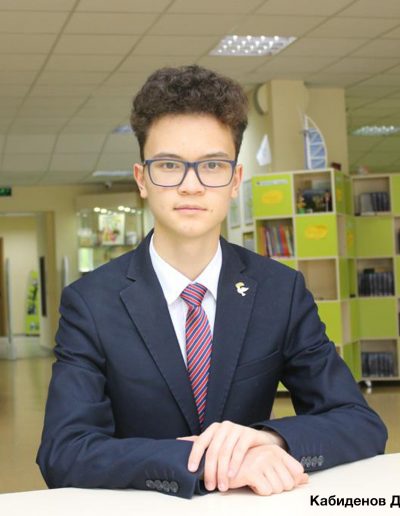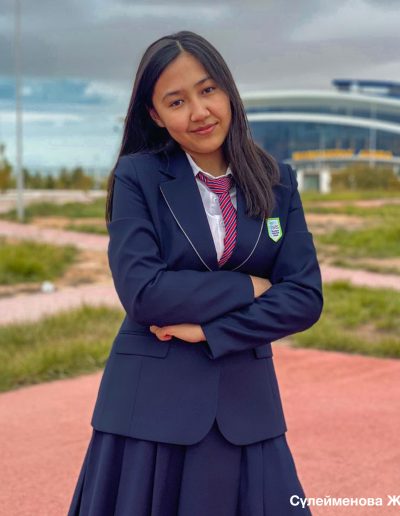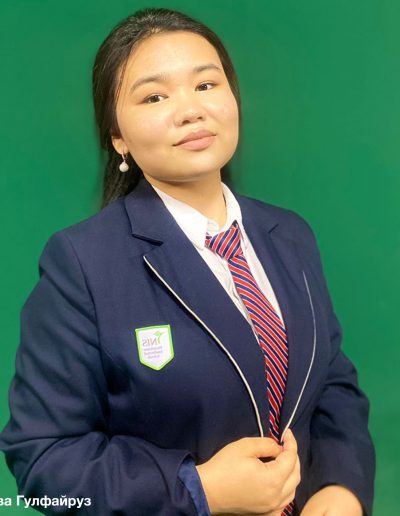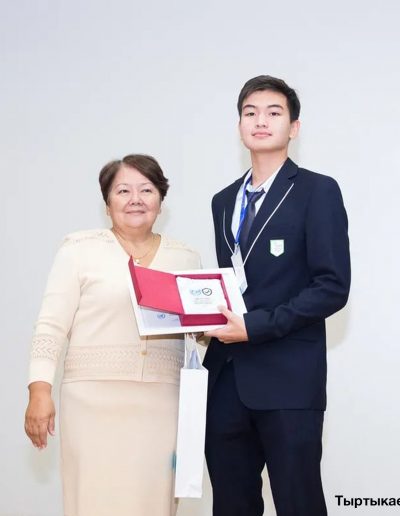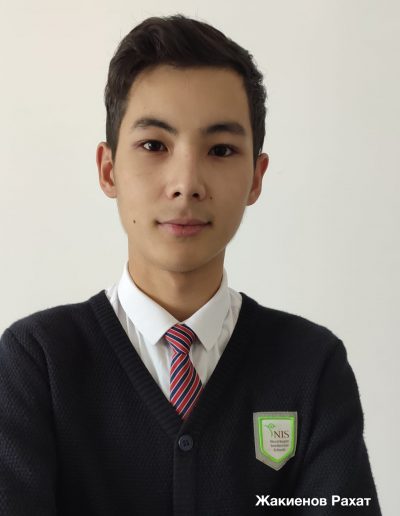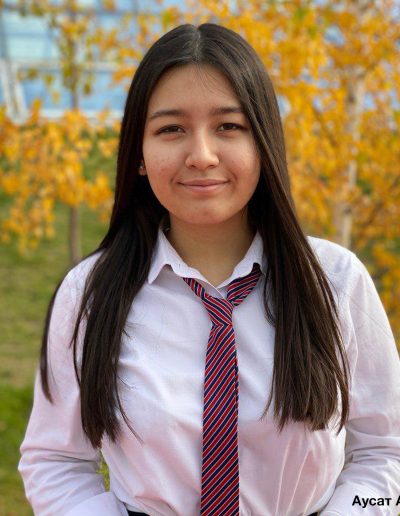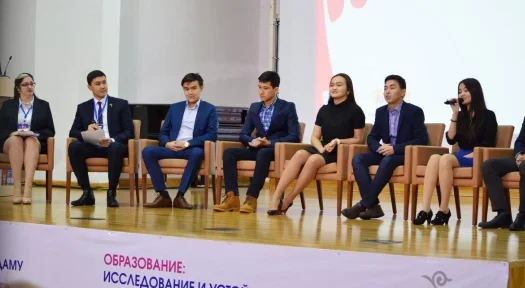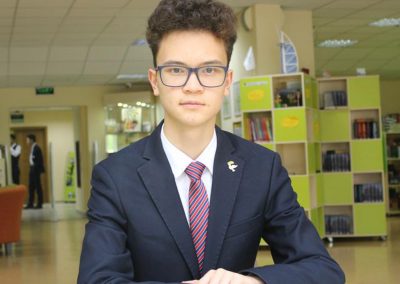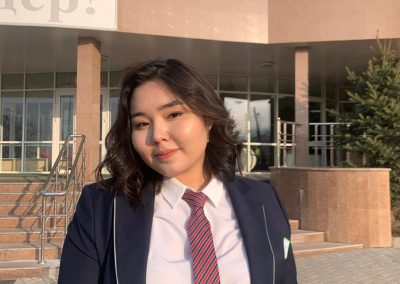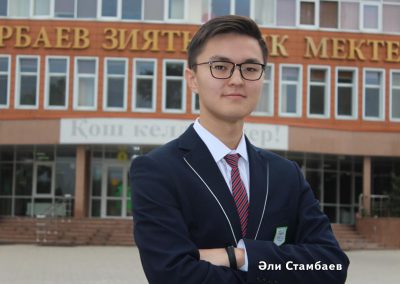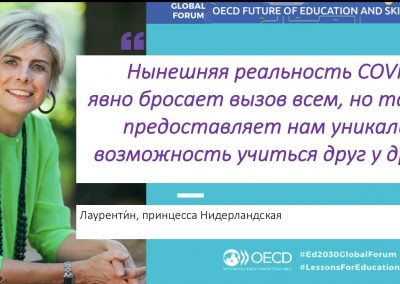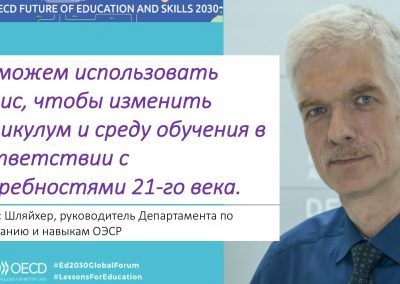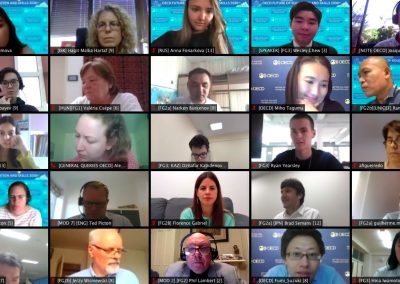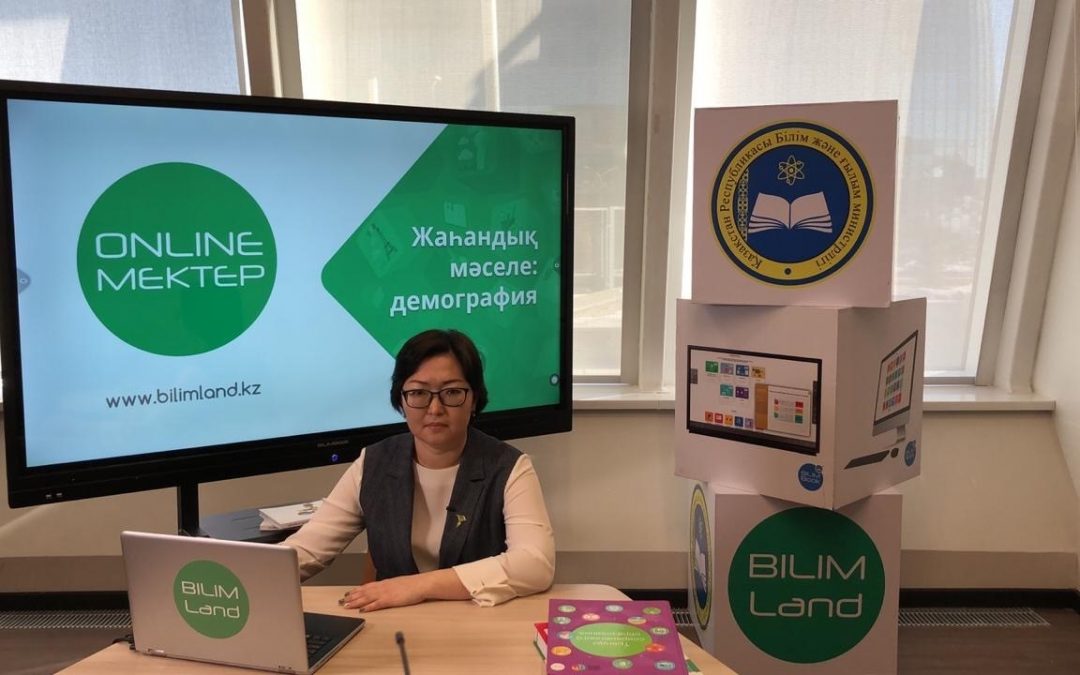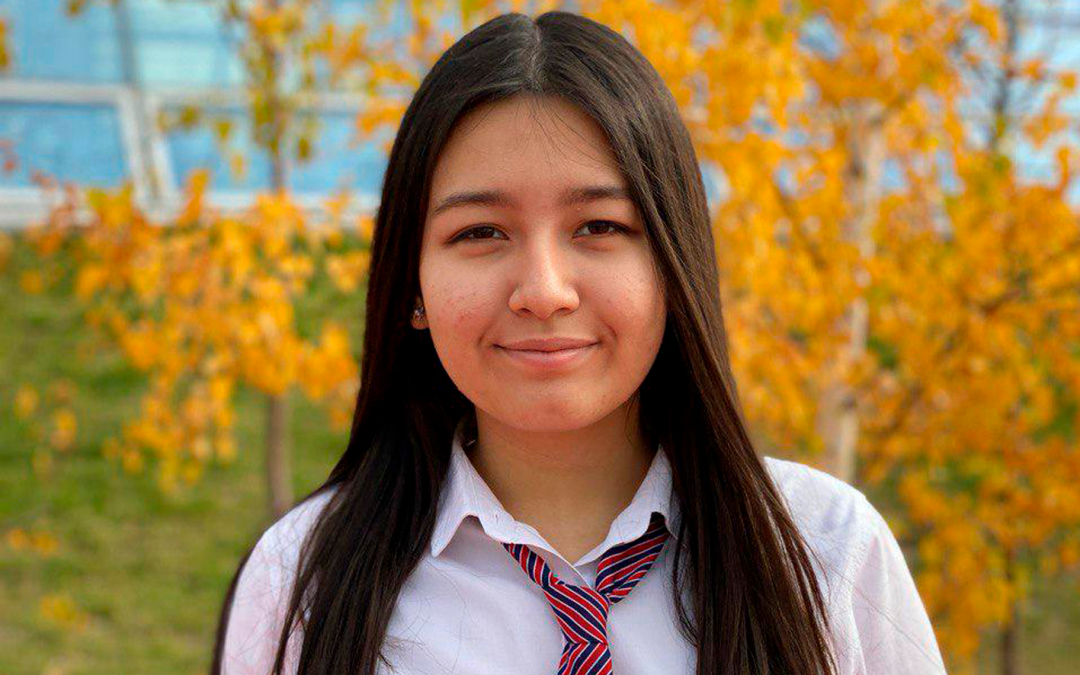
The Second Virtual Workshop of the OECD Global Forum on the Future of Education and Skills 2030: Education 2030
The Second Virtual Workshop of the OECD Global Forum on the Future of Education and Skills 2030: Education 2030
In 2020, Nazarbayev Intellectual Schools AEO (hereinafter – NIS) continued its work on the OECD project Future of Education and Skills: Education – 2030 as the national coordinator from Kazakhstan. In October 2020, NIS AEO took part in the second virtual workshop of the global forum (hereinafter – forum). The first forum was held in May 2020.
The forum was attended by NIS employees represented by Zhanar Abdildina, Zukhra Shegenova, Madina Tynybaeva, Asem Erkinova, Zarina Khamidulina, and deputy director of NIS PhM in Nur-Sultan Aydar Khoroshash. Also, Grades 10 and 12 students of the NIS PhM in Nur-Sultan Rakhat Zhakienov, Aruzhan Aussat, Azat Tyrtykayev, Grade 11 students of the NIS ChB in Aktau Zhanerke Suleimenova, Gulfairuz Niyalova took part in the forum. Dzhafar Kabidenov, a student of NIS PhM in Almaty, was invited by the OECD Secretariat for the second time and presented the results of the group work.
At the first forum, participants from all over the world discussed the difficulties and opportunities to formulate possible solutions to overcome the challenges in curriculum delivery during a pandemic. The second forum aimed to discuss challenges and educational responses during school reopening/starting a new school year with a special focus on equity issues.
During the two days participants worked in multi-stakeholder groups with international experts on ZOOM online platform. Particular attention was paid to voice and experiences of students from different countries. Group discussions started with “student voice”. Our students were appointed to different focus groups and were able to share their experiences and opinions on curriculum, assessment, teaching and learning in the new academic year.
The focus of the day 1 group work was to reduce the equity gap through curriculum contents and assessment, discussing multiple stakeholder approaches to address school failure, school dropout, what is not learned, student well-being, and motivation. On the second day of the forum multi-stakeholder groups of teachers and researchers from around the world discussed adjustments in the role of teachers and teaching during the pandemic, and the future vision of teaching, teacher – students interaction, learning environment in terms of the OECD Learning Compass – 2030. The future vision of the “Teacher Compass – 2030” (project title) was mapped out.
Find more information about the OECD project “The Future of Education and Skills: Education – 2030” at https://www.oecd.org/education/2030-project/.
